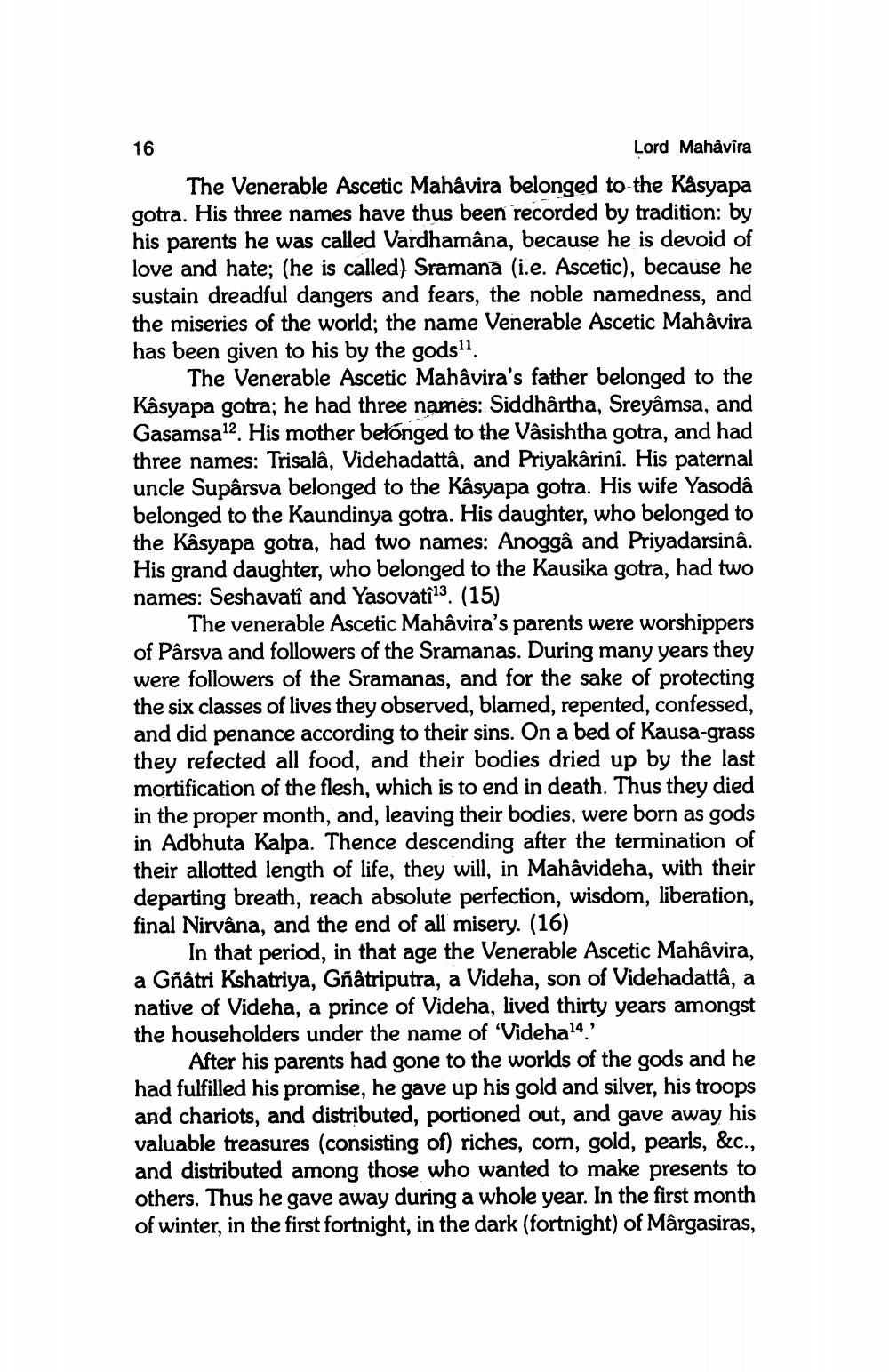________________
16
Lord Mahâvîra
The Venerable Ascetic Mahâvira belonged to the Kâsyapa gotra. His three names have thus been recorded by tradition: by his parents he was called Vardhamâna, because he is devoid of love and hate; (he is called) Sramana (i.e. Ascetic), because he sustain dreadful dangers and fears, the noble namedness, and the miseries of the world; the name Venerable Ascetic Mahâvira has been given to his by the gods11.
The Venerable Ascetic Mahâvira's father belonged to the Kâsyapa gotra; he had three names: Siddhârtha, Sreyâmsa, and Gasamsa12. His mother belonged to the Vâsishtha gotra, and had three names: Trisalâ, Videhadattâ, and Priyakârinî. His paternal uncle Supârsva belonged to the Kâsyapa gotra. His wife Yasodâ belonged to the Kaundinya gotra. His daughter, who belonged to the Kâsyapa gotra, had two names: Anoggâ and Priyadarsinâ. His grand daughter, who belonged to the Kausika gotra, had two names: Seshavatî and Yasovatî13. (15)
The venerable Ascetic Mahâvira's parents were worshippers of Pârsva and followers of the Sramanas. During many years they were followers of the Sramanas, and for the sake of protecting the six classes of lives they observed, blamed, repented, confessed, and did penance according to their sins. On a bed of Kausa-grass they refected all food, and their bodies dried up by the last mortification of the flesh, which is to end in death. Thus they died in the proper month, and, leaving their bodies, were born as gods in Adbhuta Kalpa. Thence descending after the termination of their allotted length of life, they will, in Mahâvideha, with their departing breath, reach absolute perfection, wisdom, liberation, final Nirvâna, and the end of all misery. (16)
In that period, in that age the Venerable Ascetic Mahâvira, a Gñâtri Kshatriya, Gñâtriputra, a Videha, son of Videhadattâ, a native of Videha, a prince of Videha, lived thirty years amongst the householders under the name of 'Videha14.'
After his parents had gone to the worlds of the gods and he had fulfilled his promise, he gave up his gold and silver, his troops and chariots, and distributed, portioned out, and gave away his valuable treasures (consisting of) riches, corn, gold, pearls, &c., and distributed among those who wanted to make presents to others. Thus he gave away during a whole year. In the first month of winter, in the first fortnight, in the dark (fortnight) of Mârgasiras,




